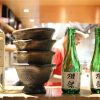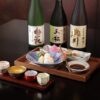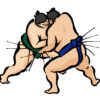What does “gokurousama” mean? ご苦労さま

The Japanese sometimes say to someone who has done some tasks or did some work as follows:
“Gokurousama(ご苦労様、ご苦労さま)" or
“Gokurousamadeshita(ご苦労様でした、ご苦労さまでした)"
Have you heard these?
This is a phrase for a person to appreciate the pain that the person has worked. The word “kurou(苦労)" in “go-kurou-sama" means “hard work", and the suffix “sama(様)" which expresses a polite meaning to people, so altogether it means “thank you for your hard work".
However, care must be taken when using this word.
Origin of “gokurousama"
There is a phrase similar to “gokurousama", called “otsukaresama(お疲れ様、お疲れさま)".
Currently, this “otsukaresama" is understood as a phrase that can be used by anyone, whereas “gokurousama" is considered to be usable by people who are in a superior position to somebody in a subordinate position.
Many people recognize that, and many manner classes teach it that way.
Then, for example, “otsukaresama", the boss can be used in all directions, including subordinates, subordinates to bosses, teachers to students and vice versa, families and friends.
Many people in many workplaces think that they should say “otsukaresamadesu(お疲れ様です)" when leaving the office.
And many believe that “gokurousama" should be used when bosses approve subordinate labor. Therefore, some bosses don’t feel so good that their subordinates say “gokurousamadesita" to them.
So, unless you’re a boss, it’s safer to say “otukaresama(お疲れ様、お疲れさま)" or “otsukaresamadeshita(お疲れ様でした、お疲れさまでした)", or “otsukare–(お疲れー)" in a casual situation than to say “gokurousama".
There is a situation where “gokurousama" may be used by anyone. That is, for example, when you receive a parcel from a courier and you want to say “thank you."
We shouldn’t say “otsukaresama" or “gokurousama"?
Then it should be correct to say “otukaresama" automatically for people in their 60s. However, some Japanese people in their 60s and above feel uncomfortable when young people say “otsukaresama" to them.
The reason is that some people still have the common sense that “gokurousama" and “otsukaresama" are phrases that bosses say.
However, some linguists have claimed that in the Edo era, subordinates used “gokurou" as a greeting to superiors.
In Edo period literature, subordinates use the phrase “gokurou" for their lords, and their lords use the phrase “taigideatta(大儀だった)" for their subordinates. Such manners continued until the Meiji era.
Research shows that superiors began using “gokurou" from the Meiji era. The situation reversed.
“Taigidatta" was a samurai word used until the late Edo period. In the Meiji era, people felt that it sounded old-fashioned.
And it is said that it was replaced by “gokurou". In particular, such phrases began to be used in the military and then spread to the general public.
In the 1980s dictionaries began to state that “gokurou is a rude phrase when used to superiors."
And in the 90s dictionaries began to list both “gokurousama" and “otukaresama" as phrases used by superiors.
It is said that “otsukaresama" has been interpreted as being usable by anyone since about 2000.
(But in the early 90’s when I worked for a Japanese company, “otukaresama" was used regardless of job title. I was told not to say “gokurousama" to my bosses.)
Well, anyway, as of 2019, greeting “otsukaresama" is almost all right.
“Gokurousama" still sounds like “you’ve had a hard time" and a phrase from a person in a higher position.
At the moment, “otsukaresama" is a useful phrase that does not explicitly state whether the person is tired or not or how tired that person is and that you can show some consideration to his/her.
















